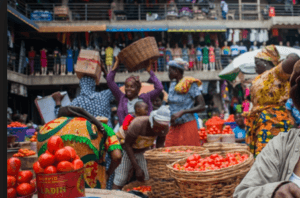Women’s active participation in trade key to Africa’s economic development
 Women’s active participation in cross border trade is key to Africa’s economic transformation.
Women’s active participation in cross border trade is key to Africa’s economic transformation.
At the just ended African Union Extraordinary Summit on Industrialisation, which took place in Niamey in Niger came at the most opportune time, as scores of women in processing from different parts of Africa come together to share experiences and look at possibilities of pursuing a common goal.
Women doing business in different sectors showcased their products and engaged in conversations in efforts to make a headway in creating connections and trading with others on the continent.
Speaking at a breakfast meeting during the Africa Industrialisation Week, the AUDA-NEPAD Chief Executive Officer, Nardos Bekele-Thomas mentioned that it is crucial that even at university level students must be empowered and equipped with entrepreneurial skills so that they don’t have to look for jobs but start their own enterprises.
“We really need to think of coming up with innovation hubs and incubation centres in each and every country to energise programmes in our continent. There should be a shift in our minds on how we can deliver services to our people and that is very important,” Bekele-Thomas said.
However, women in business in Africa face a myriad of challenges that include limited knowledge of opportunities in export markets and ways to integrate into regional value chains, limited capacity to produce value added products and services, to secure inputs at competitive prices, as well as challenges relating to compliance with regulatory requirements and safety and quality standards.
Research has shown that the gender digital divide is a key underlying challenge that limits women’s access to information and ability to engage in intra-African and regional trade.
Women in Africa constitute the majority of the population and therefore, ignoring their existence is like leaving behind more than half of Africa’s population. The United Nations agency for Women (UN-Women) estimates that 70 per cent of informal cross-border trade in Africa is conducted by women traders.
Therefore, for many women, intra-Africa and regional trade have brought economic empowerment and higher incomes.
Women in Africa are actively engaged in sectors such as agriculture, manufacturing (clothing and textiles) and services. Opportunities from trade have brought more household resources under women’s control, which in turn has a positive effect on overall investment in the health and education of future generations.
Bekele-Thomas emphasised the need to create innovation, incubation and promotional centres and went on to mention that the fruits of having promotional centres is already being experienced in countries such as Kenya, Botswana, Uganda, among others.
Intra-African trade is currently estimated to contribute income for about 43 per cent of the continent’s entire population but intra-African trade accounts for just over 10 per cent of total continental trade. Regional trade in East Africa alone accounted for only 8.3 per cent of total trade in 2017, less than the continental average, and roughly unchanged over the past five years, according to a 2019 report by the African Development Bank.
By Sally Nyakanyanga
